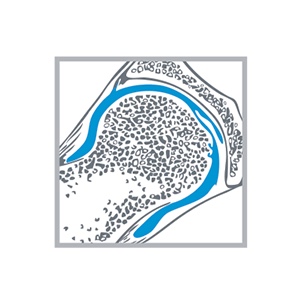Shoulder replacement surgery is becoming more common as a method of treatment for arthritis of the shoulder joint.
Shoulder arthritis is less common than other forms such as hip and knee arthritis as the shoulder is not a weight bearing joint. However due to the ageing population conditions such as osteoarthritis of the shoulder and other conditions such as tears of the rotator cuff which can ultimately go on to cause arthritis within the shoulder have become more prevalent in our community. Sometimes shoulder replacements are used to manage fractures of the shoulder.
DEGENERATIVE CHANGES & ARTHRITIS IN THE SHOULDER: LOSS OF FUNCTION AND PAIN
Shoulder replacement surgery restores function and treats pain by removing the arthritic parts of the joint.
Arthritis is a process which results in loss of the articular cartilage or the lining of the joint. In the process of the cartilage being lost or if the cartilage has been completely lost, inflammation is generated by the damaged cartilage or damaged bone. This inflammation is an attempt at a healing response in the joint but due to the nature of articular cartilage it does not regenerate. Hence usually there is progression of degenerative changes in a joint over time. With progression of the damage there is often an increase in pain and also an increase in stiffness. Stiffness causes functional limitation as the shoulder is normally a very mobile joint.
With age loss of cartilage can occur in the shoulder joint. It is also possible for the rotator cuff tendons over time to wear out. The tendons in the body generally have poor blood supply and are not good at healing and while they are strong they tend to be prone to wear. The tendons in the shoulder joint are susceptible to tears. The tears will not heal and tend to increase in size with time.


